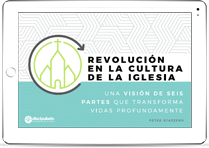Why Transformation Takes So Long!
Last week at our two-day EHS Consultant Training, Wendy Seidman shared Bloom’s taxonomy of how people learn to help us understand why it takes so long for individuals and church/ministry cultures to “get” EHS. The following is her adaptation of Bloom’s classic work on the process people need to move through to really “get” something like EHS: 1- Aware. People hear about EHS for the first time (e.g. Sabbath, slowing down, past’s impact on the present, grieving, learning to feel). 2- Ponder. People think about it, trying to understand or sort through issues as they gather more information. At this point they don’t have a clear inclination for or against it. (e.g. They continue reading, listen to messages, go through the EHS Course, learn a few EHS Skills, talk about Sabbath with others). 3- Value. People think it’s important, find value in it, and commit to it, saying, “I really believe in this EHS. Read more.






